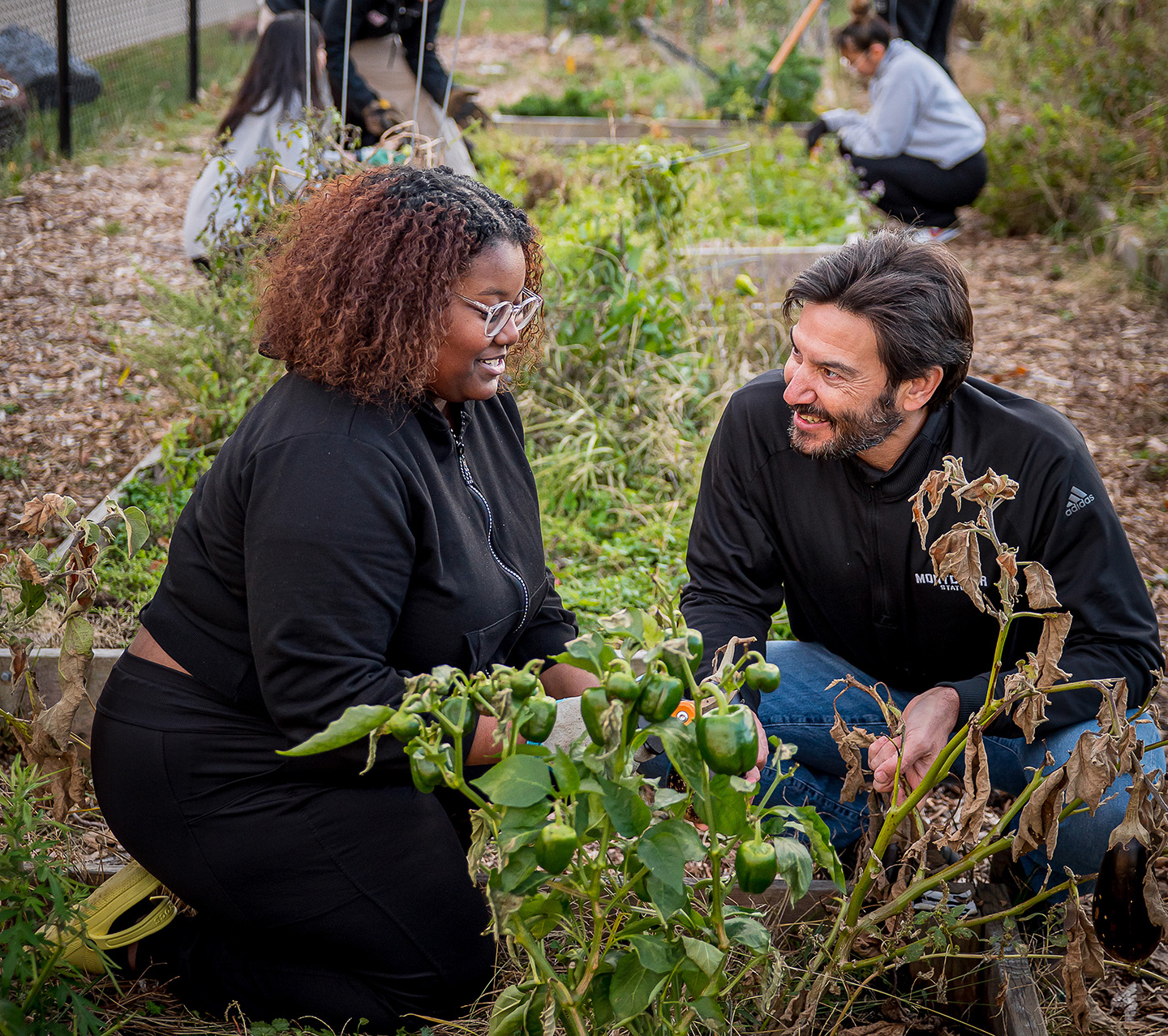
For the Greater Good
A conversation on leadership and public service with President Jonathan Koppell
In his first few months as Montclair State University’s ninth president, Jonathan Koppell’s calendar has been so full with meetings and events on campus and the surrounding communities, that he makes sure to schedule time into each day to talk with students, faculty and staff. Those connections are important to him, so no matter what else is in store for the day, he makes a point to get out on campus.
“The great thing about being president of the University is it’s totally normal for me to ask people what they’re doing,” he says.
In those conversations, he learns about faculty research and student aspirations and what they see as goals for themselves and the University.
In an interview with Montclair magazine, Koppell discussed his goals and his desire to make Montclair State University the premier public service university in New Jersey.
“We have this strong base to work from, but we are going to make public service a signature hallmark of the Montclair education,” Koppell says.
Montclair’s mission to provide an inclusive and equitable top-quality education to a population as diverse as New Jersey’s attracted the 51-year-old Koppell, the former dean of the Watts College of Public Service and Community Solutions at Arizona State University, and a nationally regarded scholar of policy, organization and management.
Koppell’s upbringing as the son of a New York politician and a New Jersey college professor instilled a strong sense of responsibility to contribute to society and the greater good. He earned degrees from Harvard and the University of California, Berkeley and taught at Yale before moving to Arizona State and becoming dean in 2011. He advocates for diversity, inclusion and equity and is determined to inspire and prepare a new generation of students to go out and meet, reach and shape the world in ways that matter.
“This generation is more focused on making the world a better place. We would be asleep at the switch if we weren’t doing everything in our power to support students and prepare them to engage in public service, but doing so in a way that’s efficacious and meaningful,” he says.
Below are excerpts from his conversation with Montclair magazine.
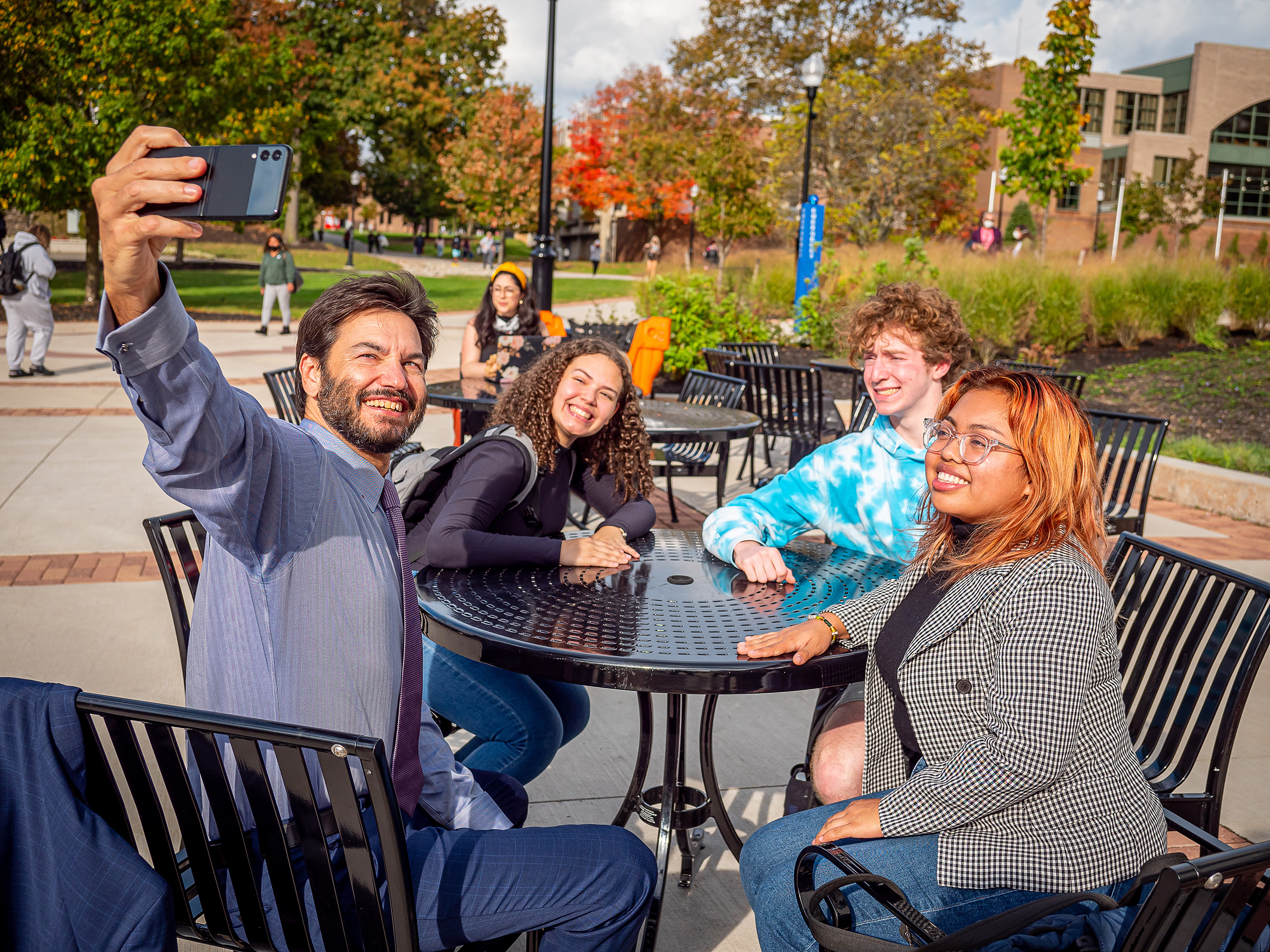
As you meet people on campus, you ask, “Why Montclair? Why did you choose to come here to study, to work here?” So ... why Montclair?
I’m here because Montclair State University represents the kind of university that I believe is the model of what a public research university ought to be in the 21st century and has the potential to lead and shine in that regard.
Montclair has never wavered in its commitment to excellence from its origins. It wasn’t just a Normal school. It was considered the best Normal school, a model emulated across the country and an innovative pioneer that was driving the field.
There was never a sense at Montclair that there was a contradiction between being a university that serves the people and a university that achieves at the highest level. But beyond that, what I saw was the potential to build upon a foundation of activity in the community and with the community to advance on the most pressing issues that we face as a society.
My vision of what a public university is in the 21st century takes that existing activity and ratchets it up considerably. We treat serving the community not as a positive thing that the university does when convenient, but as a core part of our mission and a dimension upon which we judge our own success.
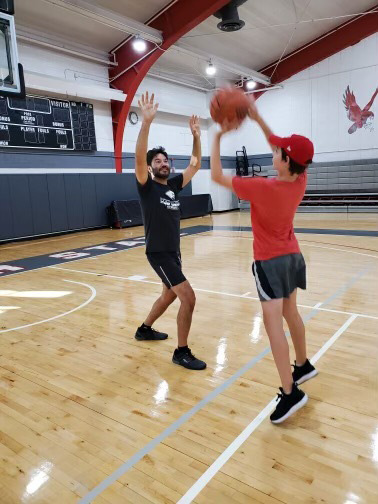
How did your upbringing influence your path?
The prepackaged answer is my father [G. Oliver Koppell] was in politics and my mother [Kathleen Sunshine, PhD] was a college professor. Being an incredibly uncreative person, I simply averaged them and became a political science professor. Truthfully, it had a huge influence on who I am.
The most profound impact was that it seemed to me if you weren’t doing something that was going to have significance in the world, something that was intended to alter the trajectory in a positive way for the lives of the people around you, then what exactly were you doing?
Your grandmothers also were very involved in public service. How did they influence you?
My father’s mother [Gabrielle Kaufmann] had a remarkable life. When she was a young woman, she was involved in an extraordinary effort to get young German, Jewish children to safety, escorting a group of children without their parents, to the United States. She later founded a preschool and was very involved in the community.
My mother’s mother [Elsie Kopstein Sunshine] was a teacher who worked as a special ed teacher in a public school in New York City. Even though I was pretty little at the time of her retirement party, I remember the way people spoke about her and talked about her impact on their lives and her impact on the school.
I don’t think it’s a coincidence that I ended up where I am, the combination of nurture and nature puts me where I’m sitting today. I’m very much a product of my lineage.
What is your vision for University research benefiting communities?
I don’t want to sell short what most people would call basic research or things that are more theoretical. Those efforts set the stage for major advances. We have this remarkable COVID-19 vaccine that’s based on 20 years of focused laboratory research. We wouldn’t be where we are today without that foundational work.
But what I’m excited about further cultivating at Montclair is research that combines empirical hypothesis-driven study with engagement in the community, organized around our shared pressing challenges.
And I want to be clear, we’re not starting from scratch.
Download the Sidebar

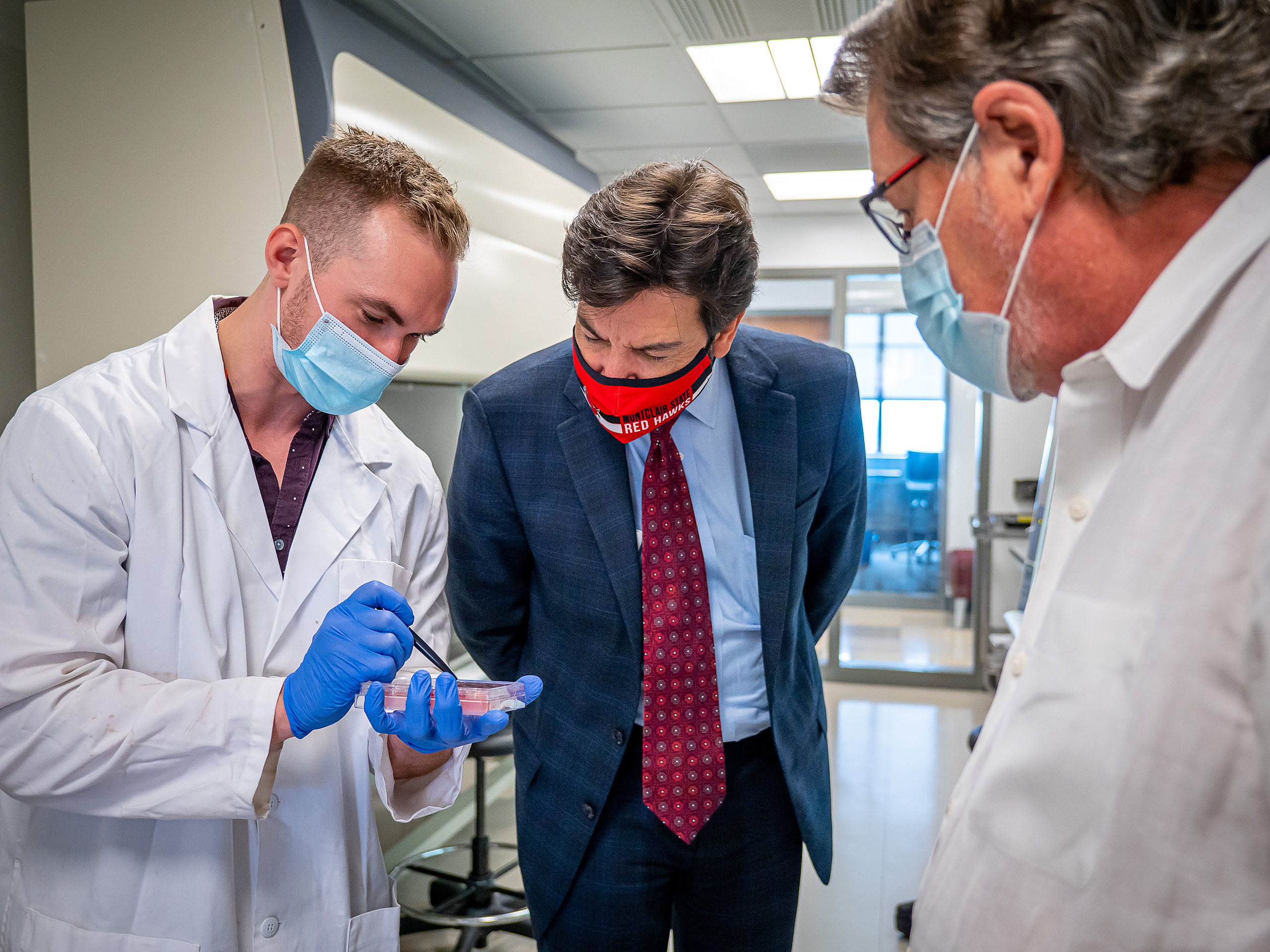
The point is that there’s no limit to what’s possible. It has to be rooted in partnership and collaboration among equals. This is not about universities walking into communities and saying, “This is what we are going to do.” It has to be that the university is a trusted partner in the community and the relationship is that of co-principal investigators working together to solve a problem that’s defined collectively.
You can do that and generate high-quality, impactful research in the process. You can bring resources to bear on the most challenging problems that we face. When a university researcher gets external grant money, the dollars that are brought in to support that kind of research also support engagement and activity in the community. It’s a double win. If you really do it right, you’re simultaneously creating learning opportunities for your students. I want Montclair State University to be known for research excellence, yes, but excellence that drives us toward a better future.
We know downtime is rare, but when you’re not running the state’s second largest university, what do you like to do for fun?
I became an enthusiastic mountain biker in Arizona. I still have to figure out the mountain biking scene in New Jersey. I’m looking forward to the winter season because skiing is a favorite recreational activity for me and my kids. The bickering usually stops when we’re skiing!
How do you think being the parent of teenagers helps you in your role as a college president?
Having kids helps you appreciate how different their worldview is. It’s a reminder that they’ve come of age and gained consciousness in a time that’s quite different from my own. It’s one of the reasons it’s important to have interaction with students on campus because you get to understand their experience, and their perspective – what enters into their consciousness is not necessarily what enters into mine.
What is your favorite part of the job?
The great thing about being president of the University is it’s totally normal for me to ask people what they’re doing.
I love talking to students about what they want to do. Not necessarily when they grow up, but even what they want to do next week or what they want to do in the semester or why they like this class or don’t like this class.
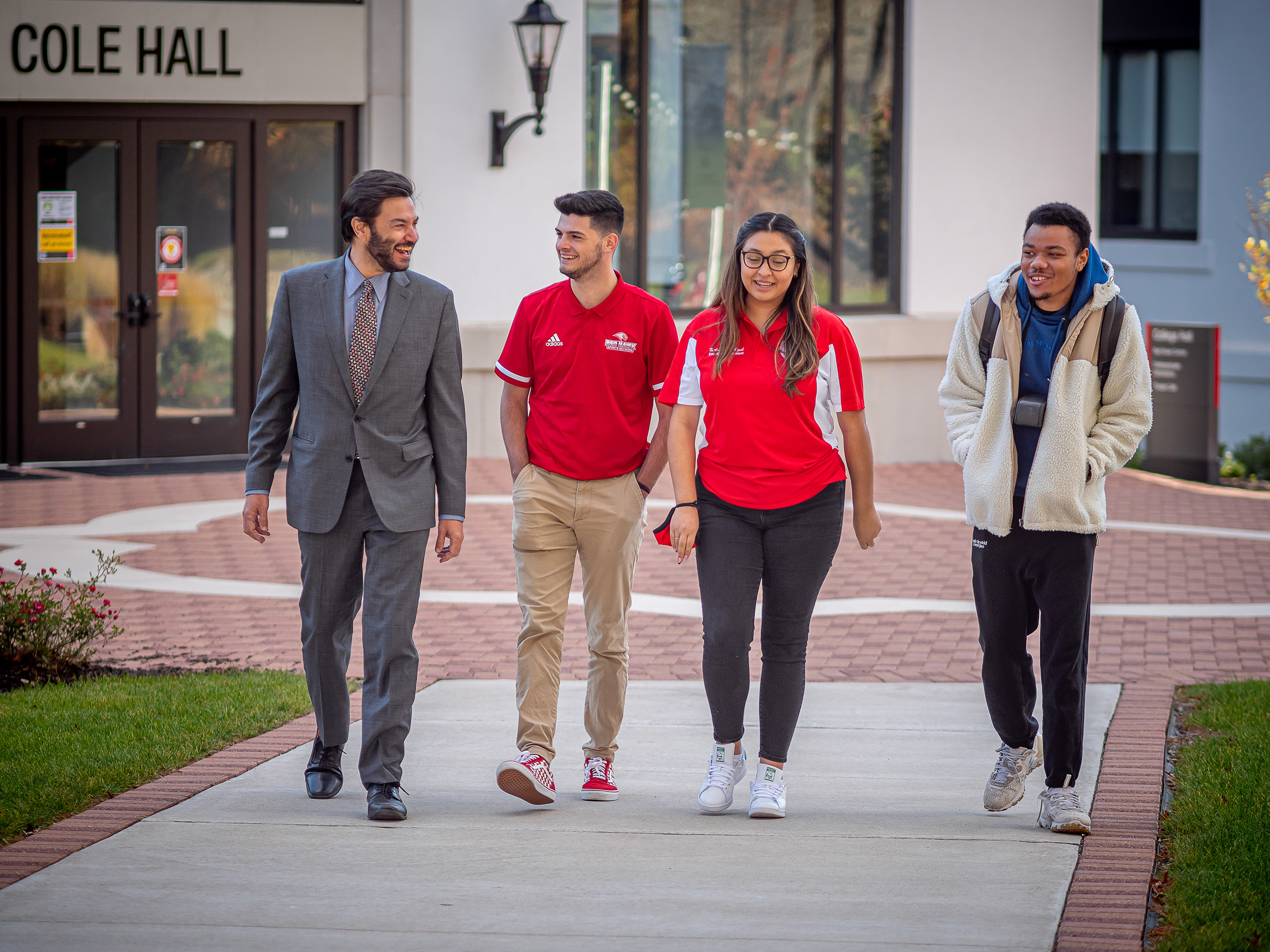
When it comes to faculty research, I’m an equal opportunity enthusiast. I could happily engage with somebody who’s working in physics versus somebody putting on a play versus somebody trying to understand some new form of business enterprise or who’s researching enzymes. I’m happy to sit there and nerd out on it and learn.
I also have enjoyed hearing from alumni about their pride and passion for the University. There are a lot of people who were touched by their time here and have a strong connection to it.
What role do alumni play in your vision for the University?
The whole idea we’re trying to build around is that Montclair State University is a community. Alumni are clearly a really important part of that community but we can amplify that feeling by giving them more ways to engage with current students, faculty and staff.
It really is a privilege to join the passionate alumni and donors who clearly feel a deep connection with the University. So many people who went here feel like it was the foundation for everything they were able to do. It is really quite moving and always reminds me how important this work is.
You took on this job in the middle of a pandemic. What additional challenges – or opportunities – does that create for you?
The challenge is that we as a population are exhausted. We’re tired of talking about it and thinking about it and having the coronavirus being omnipresent in our lives. That has consequences. Even here in New Jersey, at Montclair State University, where we’ve done a really good job of managing our response to the pandemic. Continued success requires vigilance and energy and we’re all a bit worn out.
Still my goal was to up our game: to extend the vaccine mandate to the full campus community, and to be vigorous about our masking and the utilization of Hawk Check. That required a boost of the energy and the commitment which we’ve seen and our results are fantastic. We’re well over 90% vaccinated.
We’ve tried to create a sense that we’re doing this because we are a community that cares about one another and we are committed to keeping each other healthy. That’s how we’ve tried to restore the energy and enthusiasm to work through this in a positive way.
The return to campus this fall has reminded people of just how valuable it is to be together face-to-face in a learning community. The student leadership has felt a tangible difference. We can see it, just the number of students who are going to events, the way that they are eager to be on campus together is powerful and palpable. That’s a strong reminder of what people value.
How does what we have learned from remote learning translate to your desire to increase the number of online degree programs?
The pivot to remote learning opened our eyes to the possibilities of different modalities of learning and the ways in which they are not necessarily second best, but actually sometimes preferable options to complement the traditional face-to-face model of higher education. It’s an incontrovertible truth that such variety is part of the future of education. It needs to be part of this university’s future.
We’re in a strong position to leapfrog over some other models, which are more static. We can create what we’re calling an “Unbound” model of a university, which can blend together different learning models and take advantage of the curriculum that we have in place – while also building new degree programs that reach learners in a totally different way.
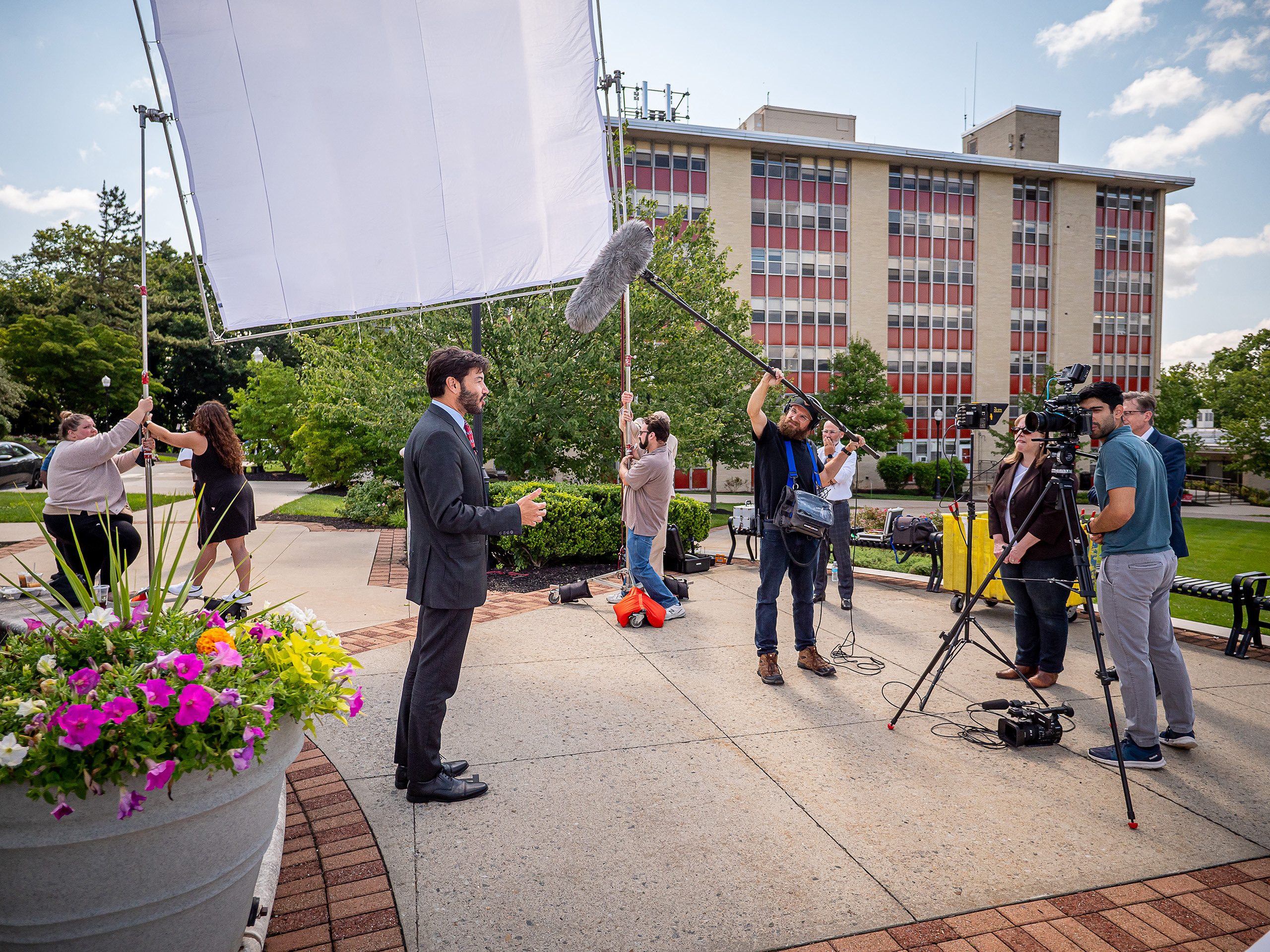
In your opening day speech to faculty, you talked about your optimism even in the face of challenges. What gives you that sense of hope?
One is being at a university, surrounded by students who are confident and bold about their ability to go out and fix it. That is the most important antidote to what’s going on in the world.
I’m not talking about any one thing. It’s everything. The health situation, the politics, the environment, but the students and the younger generation are quite sure that given the chance they can turn it around.
Some people would say, “These kids, they think they know it all. They think when they graduate, they should have a job in the C-suite.” Sure, there’s a little of that, but I’ll take it. If the choice is between the kid who’s too sure of herself versus gloom and doom and despair, I will take the over self-confidence and the belief that we can do better. That’s encouraging to me.
I also believe that none of the problems that we face are too difficult to solve on a technical level. We know what to do about most of the challenges we face as a society. What we don’t know is how to work together across ideological and cultural and political divides to enact those solutions.
So my optimism also comes from the fact that although we have been divided before – we have had these kinds of deep schisms in our society – we’ve been able to find enough common ground to make progress.
Universities are better positioned to embrace and cultivate optimistic threads than just about any place I know of.
Welcoming the largest incoming class ever, you asked students to empower their imaginations – to picture themselves and the world they want to live in 10, 20, 30 years from now. When you empower your imagination, what do you see for Montclair?
It’s an important theme that we think of imagination not as something fanciful but essential. Imagination is critical to all advances in society. Without imagination, I don’t think it’s possible to conceive of progress.
Take a New Jersey example. Thomas Edison had to imagine that you can somehow project sound across a wire into another space or that you can generate and harness electricity. If [James] Watson and [Francis] Crick can’t imagine that there’s some kind of code embedded within ourselves that translates who we are, how do they discover DNA? Before you had microscopes to see bacteria and germs, people were saying “I don’t know what it is but there’s gotta be something there.”
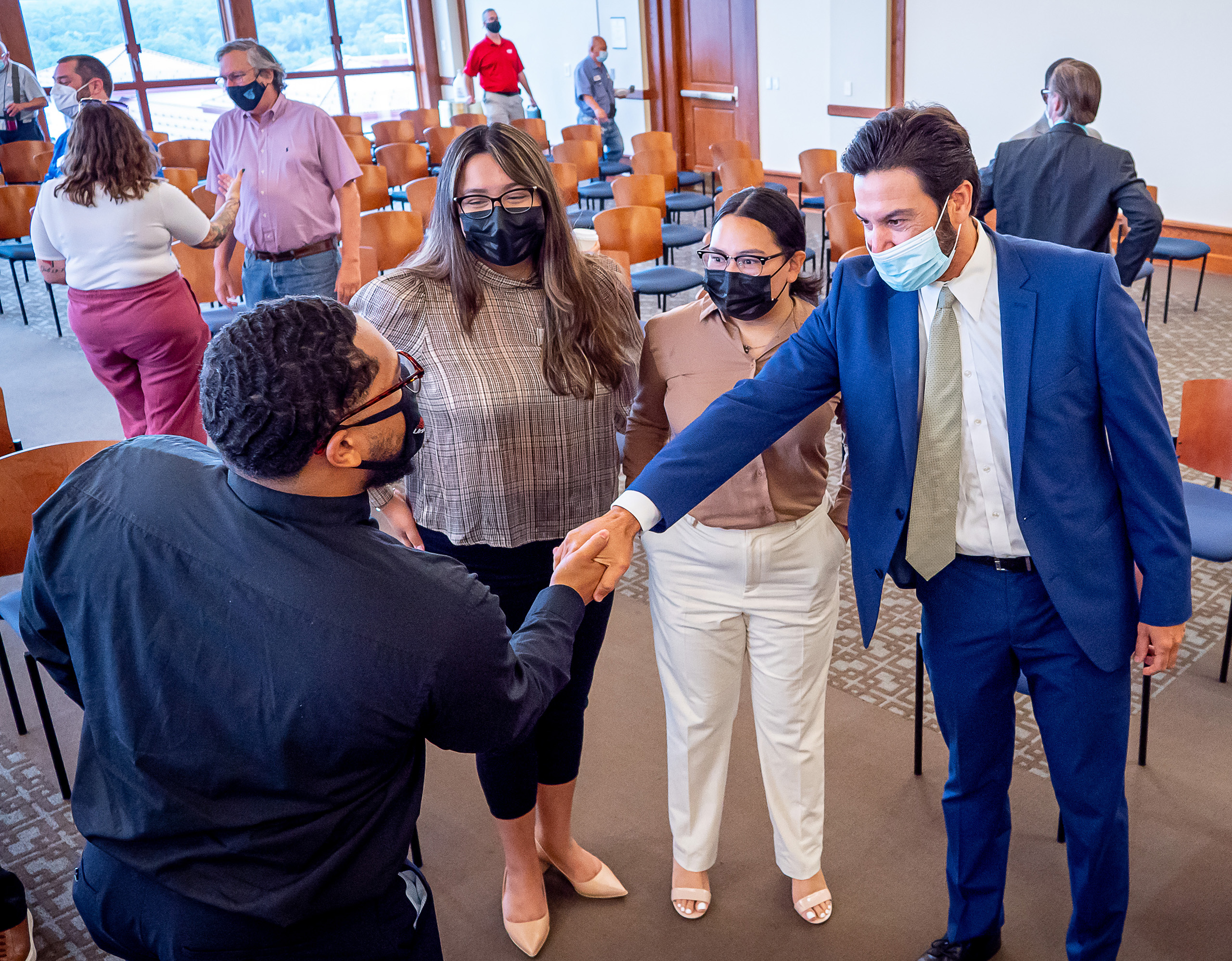
So they start to imagine. So it goes beyond the great art and fiction that spring from imagination and obviously critical parts of the human experience.
I believe going to college, and being in a university environment, is about cultivating and training your imagination so that it’s not just this wild untamed beast running around. You can learn to harness it and direct it and use it to make those leaps of progress.
It’s vital to underscore the point that imagination is for everyone. It’s as much for the business person who has to conceive of a new product as it is for the composer who’s imagining a new sonata.
That applies equally to us who are charged with taking Montclair State University into the 21st century as a public service research university. We will do that by training, educating and cultivating a population that is representative of the state that we serve. That is our mission. And not just to provide an education, but an education of the very highest quality. That is our purpose.
It is also to do research that is fundamentally of public value that empowers us to solve problems that address pressing questions that advance knowledge in pursuit of a better future.
And it’s that we take responsibility for addressing the needs of the communities. We will be a partner with governments, nonprofits, individuals who are seeking to address the greatest challenges.
When I imagine what Montclair State University is, I see it as a leader nationally – and beyond – in defining that model.
Why are you so passionate about public service being a central part of that model?
Students today are in many ways more idealistic, more passionate about doing something that matters than previous generations. There’s unfair characterization of young people as being selfish and narcissistic because they’re staring at their phones. I think the inferences drawn from that are unfair. They are more interested in making a difference than we give them credit for, more enthusiastic and eager. It is part of the mindset of this generation that gives me optimism.
I also talked about their arrogance, which does have an upside, but has some pitfalls too. We would be asleep at the switch if we weren’t doing everything in our power to support them and prepare them to engage in public service, but do so in a way that’s efficacious and meaningful.
My goal is to have public service become synonymous with Montclair State University. We already have a strong foundation to build upon – with service programs in every college and strong connections to AmeriCorps and other initiatives – but we are going to make this a signature hallmark of a Montclair education. We will play a leading role in a national movement of university support for public service.
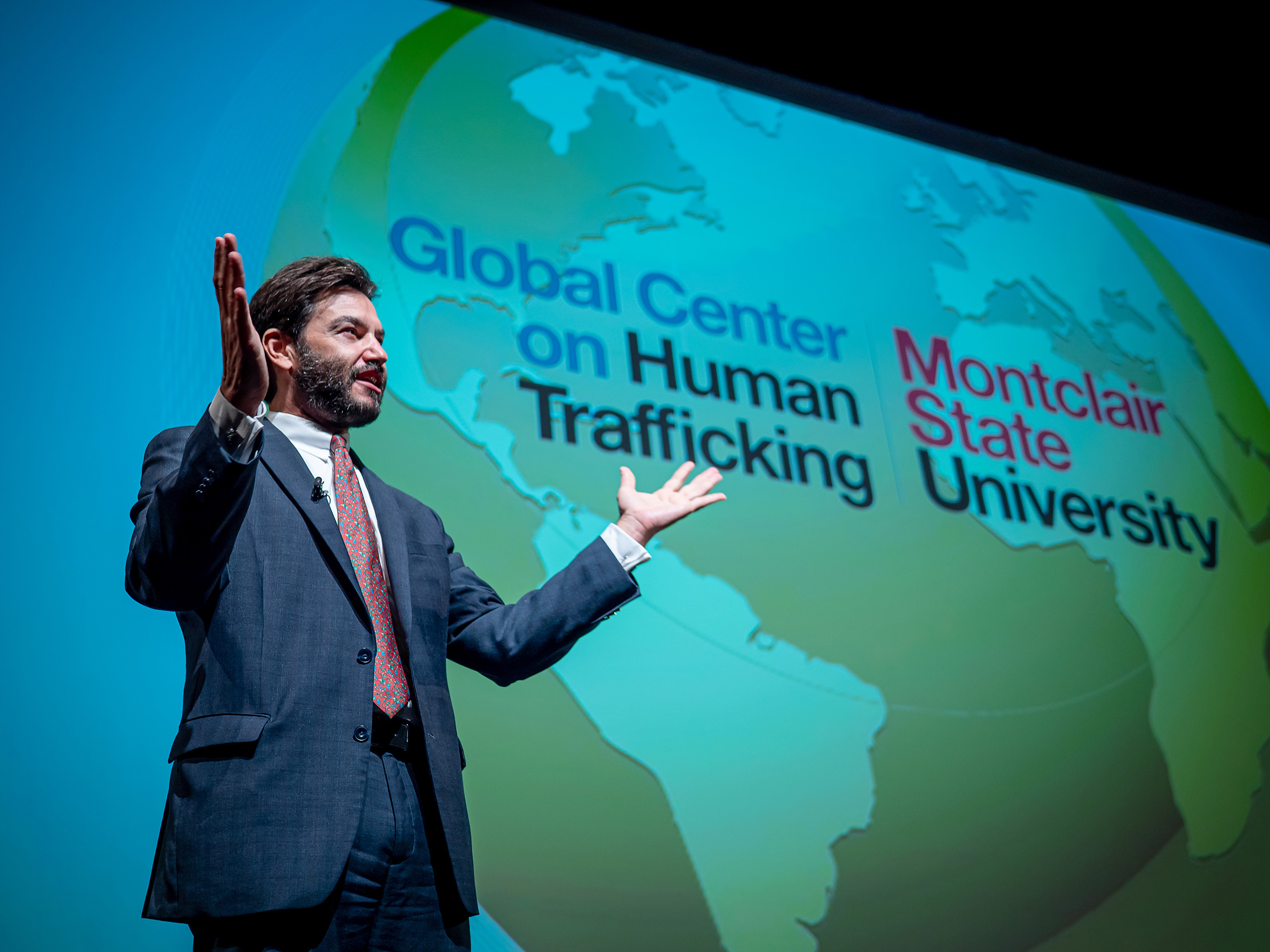
Excerpted by Laura Griffin and Marilyn Joyce Lehren